The first thing the boys said was, “Let’s go to Indian Affairs in Thunder Bay.” We went to Indian Affairs and they wrote us cheques for work boots, and work clothing and all this stuff. I already had all this stuff. It was winter time. This is in November. So off we flew to Winnipeg and they picked us up there. I was sort of the Foreman so they put me up in Clear Lake with Area Manager, Creager Paulson. They guys were stationed all around the outside of the park. We’d have meetings every Monday. Everybody would come in. All the wardens would meet. The guys were getting a little homesick and that. So I said, “Fellas, let’s go down to Brandon for the weekend. We picked a weekend to go down to Brandon and we go down there and we whooped it up in Brandon eh. Oh my God! Jesus Christ! So, Sunday morning, we knew that we’d have to have a meeting on the Monday. I had to get back and so did Frank Lewis who was one of the patrolmen. We decided to go back, he’d had enough. Meanwhile, the rest of the fellows were left in Brandon. I was living at a motel in Onanole. I said to Frank, “What are we going to do?” He was an older fellow and I was just a young punk then eh! About 2 in the morning there is a big rukus outside eh. The guys had took a cab all the way from Brandon (to Onanole), and they were all drunk. So, (I thought) what am I going to do? They were in my room drinking and I said, “You guys got to get out of here!” So I woke up the owners and I got everybody rooms. I got in a fight with one guy and so I went outside with him and I dealt with him. I said, “Boys, let’s go to bed.” Early the next morning I called Creager and told them what was going on. He said, “I’ll pick you guys up in a van and we’ll take you to the meeting and we will sort all that stuff out and throw those guys back out there (on their districts). That’s what we did. We were there for six weeks. Come the end of the six weeks the guys had spent all their money boozing. They spent all their frickin’ money. I still had money. I budgeted my money to get home, to get to Thunder Bay and back to Marathon; but those guys didn’t. So the first thing I did was say to Creager, “Those guys spent all their money!” You know, $1200 was quite a lot in 1971. Well he says, “You’d better call your superintendent.” In the meantime, Mike Schintz was hired as Chief Park Warden. I had never met Mike Schintz. So, I called him and introduced myself on the phone. I said, “Listen Mike. This is what happened.” I said, “Send money.” And that’s what they did; they sent money for us to get back to Thunder Bay and enough to get on the train to Marathon. So the guys had enough money. They met their wives in Thunder Bay and I went on to Marathon. So the guys said to me, “It’s Christmas time.” So I gave the guys all my money, I think I had something like 6 cents (left) in my pocket. This is before debit cards and stuff. So I jumped on the train. I thought I’d get my room back at the Neverest Hotel so I took the train back and arrived late at night. The night clerk wouldn’t let me in….and said, “I don’t remember you!” I had been there six weeks before. I said, “Well, I’ve got a room here.” They had to call the Superintendent late at night to (verify that I had a room). The Superintendent said, “This is Fred Tremblay. Give Byron Irons a room!” So I stayed there. We had to do some planning to get everyone back in the bush. Meantime, the guys had a week off because we had to do some planning to get back into the bush. So, I was there in Puk from 1971 to February 4th, 1974 when I came here.
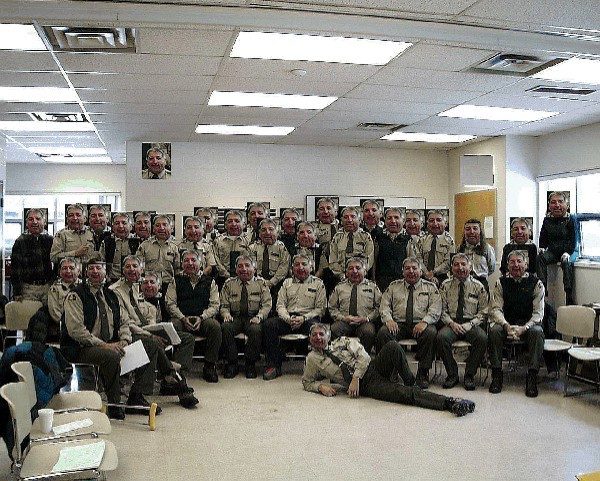
Photo courtesy of Larry Halvorson.
When we got down there (to Marathon) they had told us every one of you have to go into the bush. So for every man Freddie Tremblay ordered all of the gear. It was wintertime eh and every man got a double-track skidoo, a 12’ x 14’ tent, a great big axe, a winter sleeping bag and all the stuff. So then we all assembled and we were going to go in the bush. The guys knew their way around; I didn’t. Well this is where we are going to start and camp all winter. So Freddie talked to us and he said we didn’t need wood – you know for wood fires and stuff like that… (he said) “I got this 5000 btu whatever it was – catalytic converter…” We planned all our grub. So off we went….f—ing near froze to death! (everyone laughs – a lot). The next day we packed everything out. We said, “Fred, we can’t do this man!” Schintz was there eh; and I don’t know why Schintz didn’t give us the cream-eaters stuff eh. So the next day we went and got asbestos pipe holes for the tents and we got wood heaters, a chainsaw and (we went) back into the bush. We were doing trails in the bush, inventory …sometimes we were wondering what the hell we were doing in there. We were mostly trying to keep warm. Our first camp was at Lillian Lake and I remember we were camped and there is a big stand of birch right along Lillian Lake. We tried to burn as much dry wood as we could trying to keep warm. But we also burnt green birch eh. So anyway, most of our time was spent getting wood and keeping warm; it was 40 below in those days eh.
Rod: Were these old game trails?
Byron: Yeah. Game trails and there was a power line going through. But we really didn’t know our way around. Deep snow. And it is rugged country in there; more rugged than the rockies.
Rod: So were there trap lines at that time?
Byron: Yes, there were trap lines. There were trappers. The Department of Lands and Forests allowed trappers to trap the creek beds in northern Ontario. We used to see the snowshoe tracks for miles. We developed a relationship with those guys (trappers) and it was great. Those guys would stay out all night and they’d drag in their beavers. You’d see the trail where they dragged their beaver before they skinned it.
Rod: So it was pretty productive trapping country then.
Byron: Yes, it was. They trapped lynx and martin, beaver, and fisher and all that sort of thing.
Rod: Were you actually involved in any boundary marking or anything for the park?
Byron: No, no boundary marking. At that time there actually was no real boundary. This was a brand new park. I didn’t really know anything about national parks. Even the park superintendent was an old Department of Lands and Forests guy. The only guy that knew anything about national parks was Mike Schintz. Of course he had spent about 15 years in Jasper (National Park) and he didn’t really know too much about the northern Ontario bush either. I remember he’d say, “How are things doing.” And I’d say, “Good Mike.” You know we were doing mapping and (documenting) what we could find, general information. We spent a lot of our time keeping warm. And the guys were great eh. (We’d make) all bough floors with a tarp over it and we’d share cooking duties. I got kicked off the cooking duties. There were two of us and we had kind of a little counsel there…they said, “Byron, we have to talk about food.” And so, the two cooks that were kicked off was Benny Star – he’s from Pitcairne – and me. And they said, “We don’t want you cooking!” They said, “Byron you cook burnt offerings.” I’d cook everything to a fricking crisp! Now Benny was a different story. We’d go to town and he’d say to me in Ojibway, “Irons, take me to liquor store!” We go in there and he gets two 12 bottle cases of wine. So he goes to his room and he stays there for 4 days drinking all this wine. And he developed these black scabs on his legs and he’s picking at these scabs…so I had to tell him … I said, “Benny, the guys are kind of grossed out that you are picking those black scabs off. And (especially when) you are cooking eh!” So the two of us got kicked of that (cooking detail).
You know we used the same sleeping bags summer and winter. In the summer time we would go along Lake Superior and it was cold, chilly. There are some sub-arctic plants along the lake there. You couldn’t swim in the lake it was too cold.
Rod: What about bugs? Were there lots of bugs?
Byron: Oh yes, lots of bugs. We used to go through cases of Raid and what we would do is when we stopped for lunch, we were doing these trails you know, and everybody would stop and spray ourselves. For about a couple of hundred of feet (around us) there was this huge haze of Raid. At least we had peace from these bugs eh. And we all seemed to have those coils (mosquito coils) and I remember the lantern would be going. I’d open that thing up (a can of Raid). Frank Louis – I bunked with him – and there was just this huge haze….I am sure to this day that (bug repellant) stuff is still in my system. We did that from 1971. We worked a ten (days on) and four (days off).
Rod: Did you do any fire fighting at that time?
Byron: No, we never had one fire in the park there. I did some fire fighting in the province; I did lots there. And I really enjoyed it because we had the best toys eh! So then, I went to Kootenay (National Park). Me and Greg Keesey switched (positions) and I arrived here (in Kootenay) on February 4th, 1974.
Stevie: And then Brian Sheehan came the end of February of 1974.
Byron: I actually knew Brian Sheehan before that; he and his wife Cheryl. He worked in the same forest district that I did. Yeah, so I knew Brian. And I knew Brian at the University as well. Brian had been in P.A. (Prince Albert). And so, then I came here and went to Kootenay Crossing. I was there until they moved me to town in 1977 when my kids reached school age.
Rod: Did you get to Radium?
Byron: Yes.
Stevie: You moved out April 10th, 2002 when you retired.
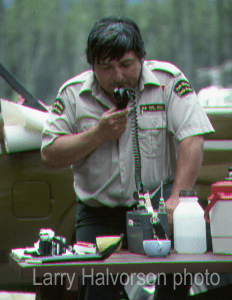
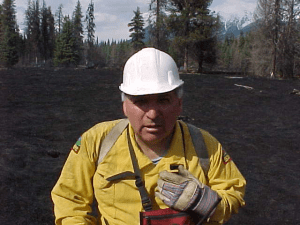
Photos courtesy of Larry Halvorson.
Rod: Tell me about your first day at Kootenay Crossing when you went into the office to see (Neil) Woledge.
Byron: That was interesting. He (Neil Woledge) did not quite know how to take me because I had my wife and my little kid, Jennifer, who was about 6 months old. I walked down from town. I don’t know if you remember Neil; he was quite a brusk man eh, and he yelled and shouted a lot. He couldn’t hear due to (exposure to) artillery in WW2. He couldn’t hear, so Woledge didn’t quite know how to take me eh! And so he was doing stuff and he every once in a while he’d say, “You’ll need a truck etc….” And I said, “Neil, I don’t have a vehicle, it’s being shipped from Thunder Bay on the train. (Woledge says), “Well, once a week you can go and get your grub in town.” I say, “Okay.” That seemed fair enough. He continued to work on whatever the hell he was working on and that was basically my first day.
Rod: John Taylor told me a story about your first day at the Crossing.
Byron: It wasn’t quite my first day; it was in the springtime. It was one of the first times in the spring and Woledge comes up with Lance Cooper’s father Cecil. Since it was kind of my area there, they wanted to know if they could put in a backcountry campsite on Dolly Varden. So Woledge had this blue station wagon. Why they gave the Chief Warden a blue station wagon, I don’t know. He said, “Jump in!” “We’re going up to Dolly Varden”. Cooper, he is the Trail Crew guy. So we go up the fire road, I unlock the gate there, and off we went. We are going along the frickin’ road and there are a bunch of spruce hens walking across the road eh. And, Woledge yells, “I want some chickens!” Cooper jumps out and so does Neil and he goes like (indicating) and he brings out a frickin’ a pistol. Those spruce hens went up this tree and it’s spruce eh. They fly up there and those frickin’ branches are bouncing a bit. Frickin’ Woledge shoots the .22 at these spruce hens. He never even hit one. And Cooper, he’s another old WW2 vet eh, and he was a gun nut. He says, “You are no God Damned good! Give me that thing!” (Woledge replies) “F— you!” They have a great big shoutin’ match eh. They never ever did get a hen. I was a little bit flabbergasted eh, because, here’s a Chief Warden shooting chickens on this fire road.
So, basically I was there and kind of did general duties. Then I was on Fire end of things. I really enjoyed that.
Rod: You had several fires in the park; tell us about that.
Byron: I had lots of fire experience with the National Parks, just in Kootenay; probably more than anybody in the block.
Rod: You get lots of lightning (ignited) fires, don’t you?
Byron: Yes. And then I got on the Fire Command Team (and) I did a lot a lot of work with that team. I did a lot of tours up in Wood Buffalo, P.A. (Prince Albert), Waterton, Jasper, Riding Mountain and Banff. I did a lot of fire work, and kind of finished off in KYLL (Kootenay, Yoho Lake Louise) when they amalgamated into one (district). In a sense, if you want to talk about change, that was a big change. There was some hard feelings. I took a chunk of Banff and I took Yoho, so that displaced Ian Pengelly’s territory north of Lake Louise to the Jasper boundary. And also, Ken Schroeder was a fire guy in Yoho. So, there was some hard feelings there. We went to fight the Tsawwassen fire in Prince Albert and I was with those guys eh. Ian was the Fire Boss then, and I can’t remember what Ken was. So I am coming back to Banff with those guys in the van to Banff. I was going to be picked up in Banff. There was simmering feelings eh. Ken was in the passenger side and Ian was driving. So I put my big head in between them eh. I said, “Fellas, we got to talk about this We’ve go to get through this.” I remember the boys weren’t that – as you can understand – they weren’t that keen about that whole business. Finally, Ian says, “Okay then, have at her!” He was fricken’ mad eh. I buffeted that little paradigm for a few years there before we sorted things out. Before it got worked out and you know it was a bit of a rough patch in my life. But I got through it.
Stevie: My observation is that you got through it because of how you are with people. Right. It’s your personality and your – I want to say management style – but its your people smarts is really what it is. Over your career as a warden you spent a lot of time…you were backcountry manager for a while…you handled law enforcement, remember you had that in your portfolio for a while. You were a station warden and then most of it though was fire, the last part. You were also the EAP rep. Bryon was perfect for EAP (Environment Assessment Program) because Neil (?) was very good at listening to you and giving you direction. But then with this his poor memory he would never remember why you came to him.
Byron: You have to be nominated by the Union. I remember the union guy saying to me, “Byron, you’ve had many marital problems, financial problems, addiction problems…” and all this stuff eh. He said “You’d be a good candidate.” I said, “Okay, I’ll do it.”
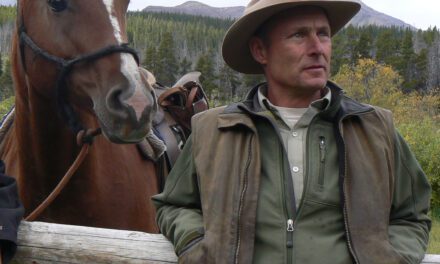
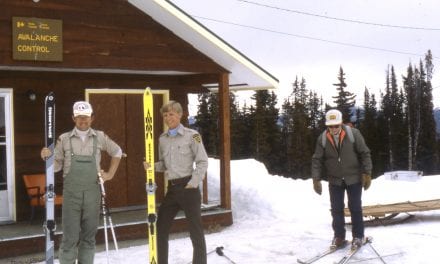
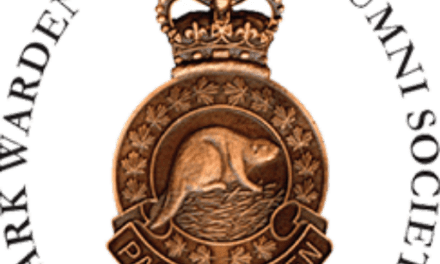
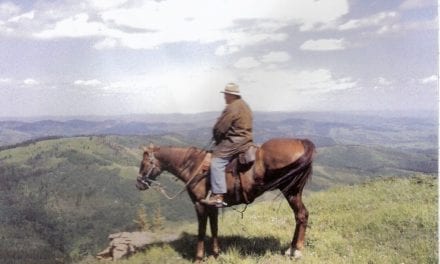
Recent Comments